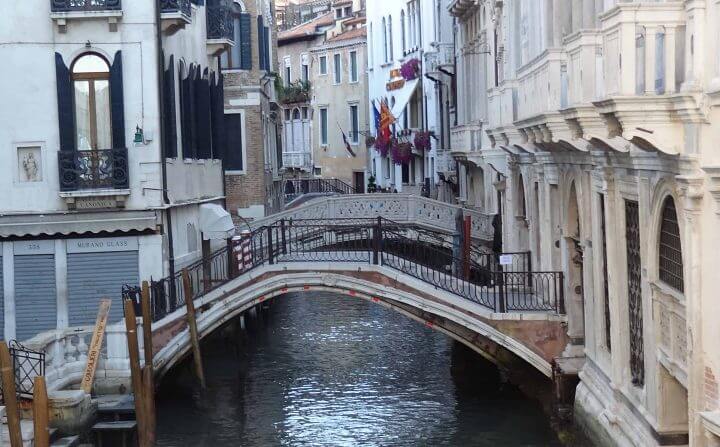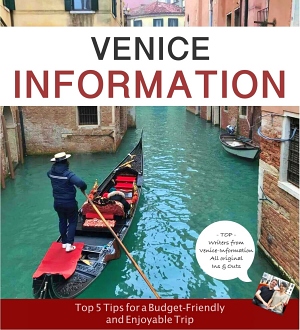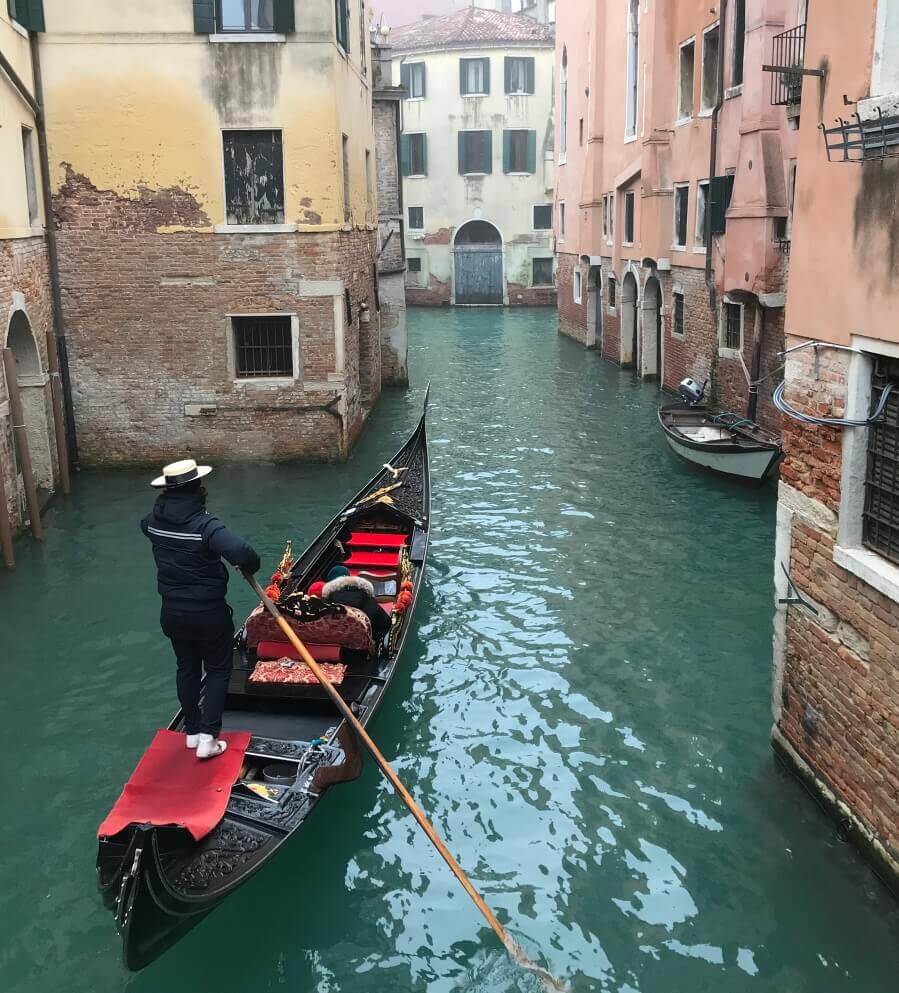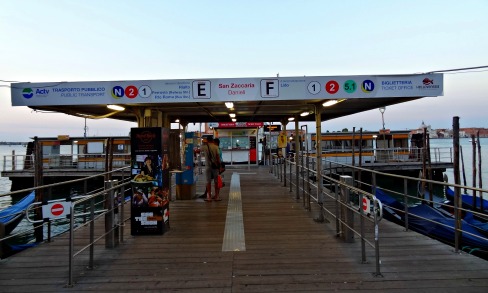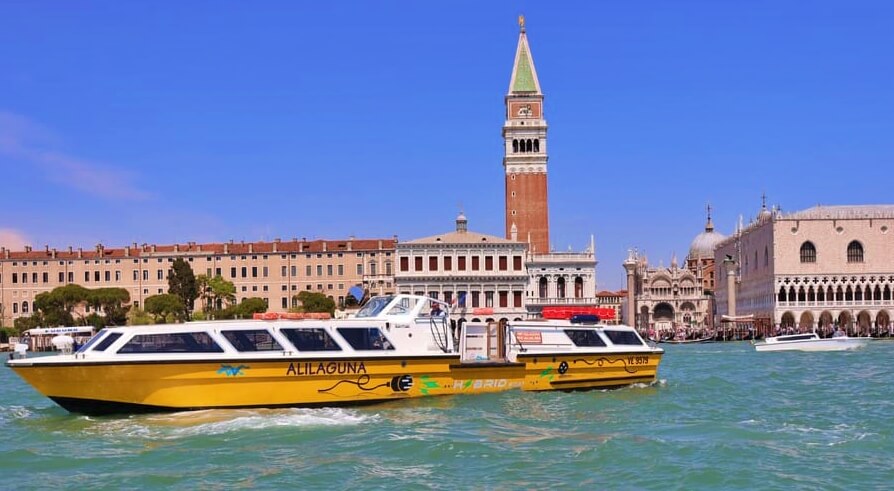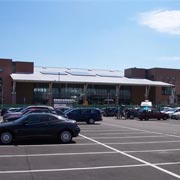- Home
- Facts about Venice
- Sewage in Venice
Is there a Sewage in Venice?
In Summer it Smells, But People Swim in the Water When Acqua Alta Occurs
I've often been to Venice, and I always ask myself, how does the sewage in Venice work...? Does anyone know how Venice has arranged its sewer?
Is it wrong that there is...
...No Sewage in Venice
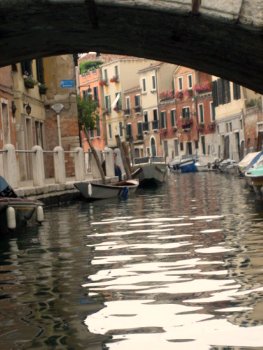
A city on the water with drainage. Yeh, right... Tourist complains 'it stinks in Venice'... A great topic! Indeed, is there a sewage, or does it go directly into the channel? Something not immediately comes to mind, but still very interesting.
Because in the summer when the sun is shining the water in Venice Italy sometimes smells very severe.
But, please pay attention because it is...
...Unhealthy - Luckily Venice is Improving their Waste Water Treatment
Recent Articles
-
Direct Flights to Venice | Find Nonstop Flights & Best Deals
Apr 13, 25 07:23 AM
Discover nonstop Direct flights to Venice from the US & UK. Compare airlines, flight durations, prices, and book your direct flight easily.
Recently the city has been improving its wastewater treatment. The government placed around 140 small biological wastewater treatment plants in the city.
And Venice already has more than 6,000 septic tanks that can process and treat wastewater.
It is forbidden to start a restaurant or hotel without a wastewater treatment system. The local governments are working hard to solve the problems caused by sewage.
Due to the problematic systems beneath the city, it is still challenging to resolve all the sewage in Venice problems. Many of them are outdated and are still causing many problems for the town and the health of the millions of tourists.
People in Venice tell you that most sewage goes directly into the canals without treatment. It is indeed in seawater. This water is so incredibly salty that it is not polluting or dirty. And you will not notice as a tourist because the tides flush out the canals. Plenty of people often swim in the calm water at acqua alta in Venice.
So, my advice.: think twice when you get in the water...
In short, Venice recently has a wastewater treatment system and uses the canals not 100% as sewage.

Yes, Venice does have a sewage system, but it is pretty different from what you might find in other cities. Venice is built on a series of islands in a lagoon, and its unique geography presents some challenges regarding waste management.
Historically, sewage in Venice was handled through an intricate network of canals and drains. However, modern sewage treatment systems have been implemented over time to improve sanitation and prevent pollution. The city now has a centralized sewage treatment plant on the island of Tronchetto, which treats most of the wastewater generated in Venice.
However, during the summer, when the weather is hot and the water levels in the canals are low, the sewage system can struggle to cope with the increased waste, and the resulting odors can become noticeable. The smell is prominent in certain areas where the water is stagnant and less circulated.
When Acqua Alta occurs, the term used for the exceptionally high tides that flood Venice, it can temporarily alleviate the odor issue. Acqua Alta typically happens during certain times of the year when the sea levels rise significantly, causing water from the Adriatic Sea to flow into the city's canals and flushing out some of the stagnant water, including some sewage.
This influx of seawater dilutes the waste and helps disperse the unpleasant smells. During these times, locals and tourists may still swim in the canals, despite sewage, as flooding is generally considered cleaner than stagnant canal water.
It is important to note that swimming in the canals is not encouraged for health and safety reasons, especially given the potential presence of pollutants and the risk of injury from debris or boats. The city authorities advise against swimming in the canals except during special events that are officially permitted and controlled.
Additionally, the water quality and the effectiveness of the sewage treatment plant are continuously monitored to improve the environmental conditions in the city.
So why does it smell dirty in Venice?

The smell in Venice is primarily attributed to a combination of factors related to its unique geographical and environmental characteristics, as well as its sewage system:
- Stagnant Water: Venice is built on a series of canals, and some of these waterways are more stagnant than others, especially during the hot summer months when the water levels are low. Stagnant water can lead to the accumulation of organic matter and other pollutants, resulting in unpleasant odors.
- Sewage System: While Venice does have a sewage treatment plant that handles the city's wastewater, during times of high tourist influx or exceptionally hot weather, the sewage system may struggle to keep up with the increased volume of waste. This struggle can result in some untreated or partially treated sewage in Venice being discharged into the canals, contributing to the smell.
- Tidal Fluctuations: The tides in the Venetian lagoon can cause water to flow in and out of the canals, affecting water circulation. During low tides, water flow may be reduced, leading to a concentration of pollutants and exacerbating the odor issue.
- Pollution: The constant influx of tourists and boats in Venice can also contribute to water pollution and the deposition of debris and waste in the canals.
- Industrial Activities: Although Venice is primarily known as a tourist destination, some industrial activities in and around the city may contribute to pollution and odors.
- Algae and Microorganisms: Warm weather can lead to the growth of algae and other microorganisms in the canals, which can release gases and compounds that contribute to the smell.
Start looking for a cheap place to sleep in Venice
You've read about the sewage in Venice questions. There is plenty to explore, as you see. Find out more about my site Venice!
Home > Facts about Venice > Sewage in Venice >
